
Hello dear traveler, I’m happy to welcome you to this practical guide on the best ways to learn a language while traveling! I can speak 8 languages and my 2 lifelong hobbies are traveling and language learning, so I promise you’re in for some quality reading time!
I’ve prepared 13 useful hacks to help you make the most of your time abroad, boost your language skills, and finally see the results of all your hard work!
We’ll cover everything from setting the right mindset to useful apps to practical ideas to help you speak, listen, and immerse in the culture.
Oh, and read along to learn how I became fluent in Russian without reading a single grammar book!
Quick Picks for Your Stay
These are the top 3 ways to become better at a language while traveling:
- Get comfortable with making mistakes and sounding funny
- Stay with a local instead of a hotel
- Strike up a conversation whenever you can
Contents
- Quick Picks for Your Stay
- 1. Do preparation work beforehand
- 2. Get used to making mistakes
- 3. Speak with locals whenever you get the chance
- 4. Create small language “rules”
- 5. Travel by yourself
- 6. Find a local host
- 7. Immerse yourself in the culture and daily life
- 8. Listen to the conversations around you
- 9. Join local language exchange events
- 10. Use AI and translation apps
- 11. Start a travel journal
- 12. Volunteer
- 13. Be persistent
- Final thoughts on best ways to learn a language while traveling
1. Do preparation work beforehand

First things first – I know you’re probably not even expecting this, but it’ll be really hard to learn a language while traveling for a few days or weeks if you don’t already have the basics.
Here’s a quick list of things to do beforehand that’ll help make language learning more efficient during your trip:
- Set clear goals about your language learning journey – why are you learning the language and what are you hoping to achieve with it? This will help you focus on the right type of learning material, allow you to create a study routine, and keep you motivated.
- Get familiar with the sound of the language by listening to music, watching movies, or YouTube videos. Extensions like Language Reactor can help you speed up the process by helping you translate words and sentences you don’t know while you watch a video. It’s crucial to get a lot of listening practice of the informal, casual language spoken on the streets.
- Learn common phrases like numbers, saying hello, asking basic questions about places and prices, and anything you know you’ll definitely use on your trip eg: Where is the bathroom or can I get the bill.
- Consider online courses, apps, or tutors to help you get started. Udemy and Memrise are great for courses, Italki is awesome for tutors (I’ve been using it for years), while Ling App is an excellent alternative for Duolingo with more language options.
These tips should help you set the grounds for proper exposure to the language before you travel to the country. And once you’re there, it’s all about immersion! So let’s move to the actual tips to help you boost your skills while abroad!
2. Get used to making mistakes

Sorry to have to say this, but making mistakes when learning a language is absolutely necessary! You can’t become fluent in a language unless you make mistakes.
Differently from schools where we’d get a lower grade for making them, mistakes fuel progress for language learners.
Have you ever heard of a toddler who speaks spotless English? Chances are, no one has. They’ll often say “Me play” instead of “I want to play”, and gradually build their fluency levels to the point where they can say a proper sentence.
Every foreign language learner of every age has to go through the same process. Your brain is literally building new physical connections so you can be able to speak fluently (the same goes for learning to play a new instrument, for example) so it’ll definitely make mistakes on your behalf.
As someone who is fluent in 4 languages and can get around in 4 more, probably the biggest thing that has helped me progress faster than my peers is that I was never afraid of saying things the wrong way!
I suggest you get used to the fact that you’ll sometimes sound funny when expressing yourself in another language – it’s the only way you can grow! And the great news is that you’ll have TONS of opportunities to make mistakes on your next trip, which will undoubtedly speed up the learning process!
Subscribe here to get up to 35% off your accommodation for your next trip!
3. Speak with locals whenever you get the chance
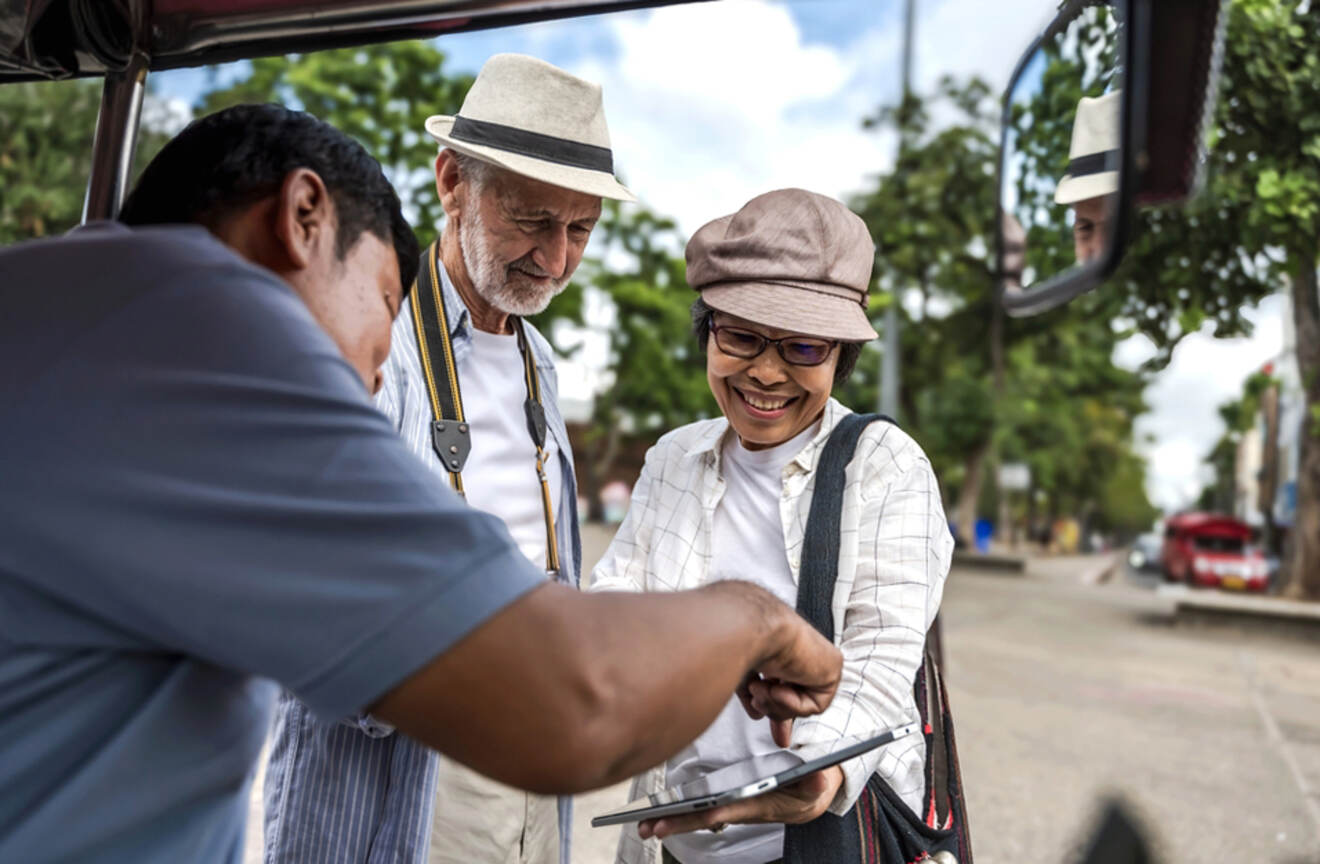
Speaking is the best way to hone your practical skills. As long as you have a basic knowledge of the language, you can use your time abroad to get better by talking to locals.
Here are some tactics I’ve used (they’re all adjustable, depending on your level):
- Ask questions about the hotel or the city at the reception
- Ask the waiter to explain what ingredients are in a dish, what the difference is between 2 similar dishes (even if you already read about it in English)
- Strike up a conversation with vendors at local markets
- Chat to the taxi driver
- Ask passerby for directions (even if you know where you’re going)
- Visit a store type you like and talk to the employee
I love practicing my speaking skills in bookstores. I once tested my beginner Hebrew by asking the seller to explain the concept of a card game I saw in the store. These were the results:
Words I understood: numbers 2 and 4, Israel, child, love, Uno, for you. Some other words sounded familiar but I couldn’t remember their meaning.
What the seller said after I asked her to please re-explain in English: It’s a game for 2-4 players, it’s originally from Israel, all kids love to play this game, I played it a lot when I was little. It’s similar to Uno but with some new rules. Are you considering it for you or as a gift?
Instantly, at least 3 other words I heard in the Hebrew version made sense now: I was little, all kids, new.
In the end, I left that bookstore with a new card game, 3 new words that finally got consolidated in my brain, and a proud feeling that I had a small conversation in Hebrew as an absolute beginner!
For me it’s a bookstore, for you it may be an art gallery, a yoga studio, or an electronics shop. Take any hobby or interest of yours and head to its store/place for some quality language immersion time!
4. Create small language “rules”
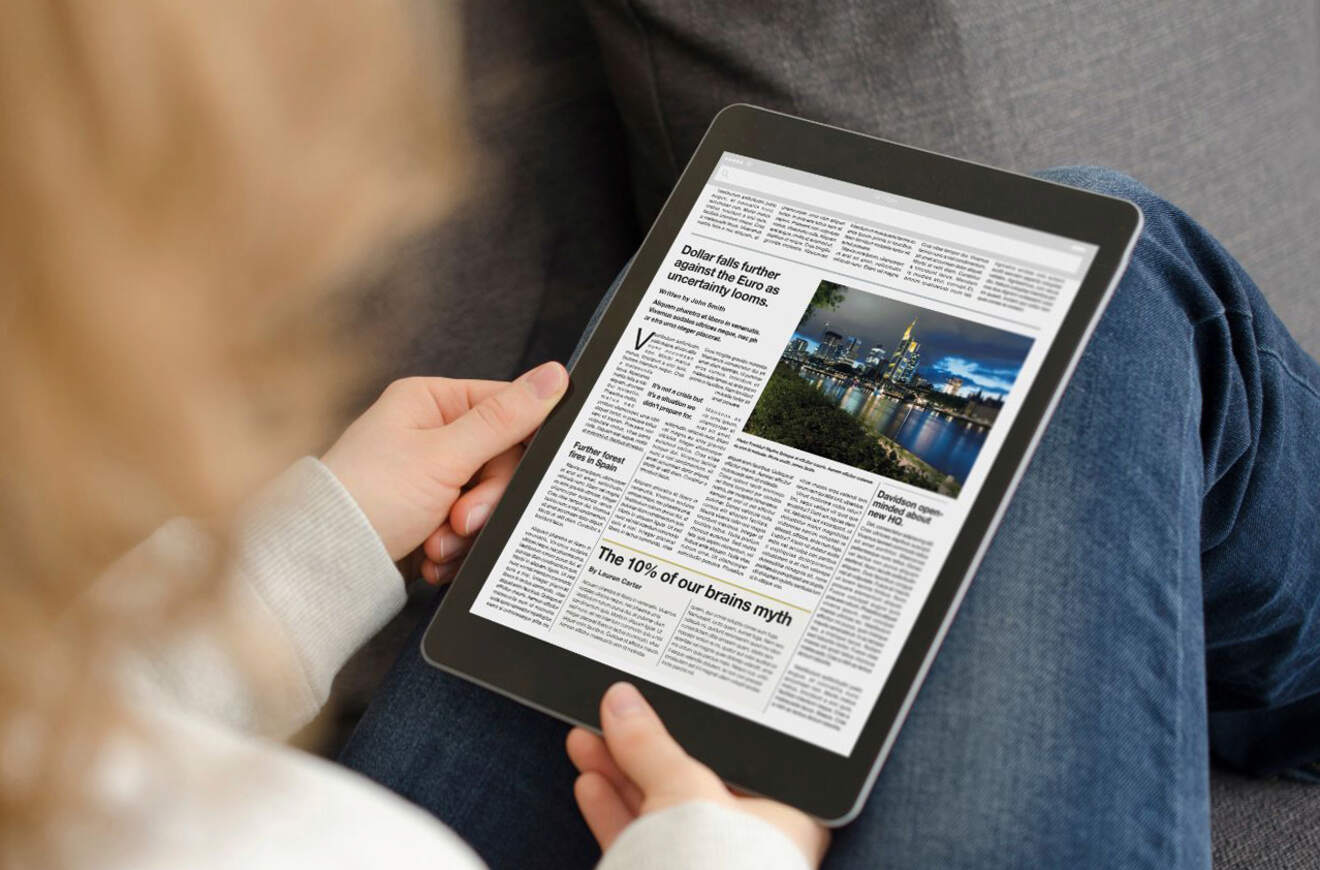
If there’s one thing I learned from all the polyglot conferences I attended, it’s that you have to make the learning process fun but challenging. A small ritual I heard from one polyglot really stuck with me and I decided to apply it at the time when I was actively mastering my French.
Basically, you have to pick one situation in daily life where you’ll only do something in the foreign language.
So every time I wanted to read news, I did it in French (I read news every day, it’s often the first thing I do when I wake up). After a few months, I could see tremendous progress in my French media vocabulary. I was already starting to express myself more freely on complex topics and sounded like a diplomat to myself!
There are plenty of ways in which you can apply this rule during your trip. For example, you could only be allowed to speak to the hotel receptionist in a foreign language. Or only order food in that language. Ideally, pick an area where you already have a good vocabulary basis so the process will run smoother and you’ll feel more comfortable!
5. Travel by yourself

If your main goal is to master a new language, then traveling alone is definitely the way to go.
When you’re all by yourself, you’re naturally inclined to talk to locals, meet new people, and therefore use the language more frequently vs. when you’d be traveling with someone.
6. Find a local host
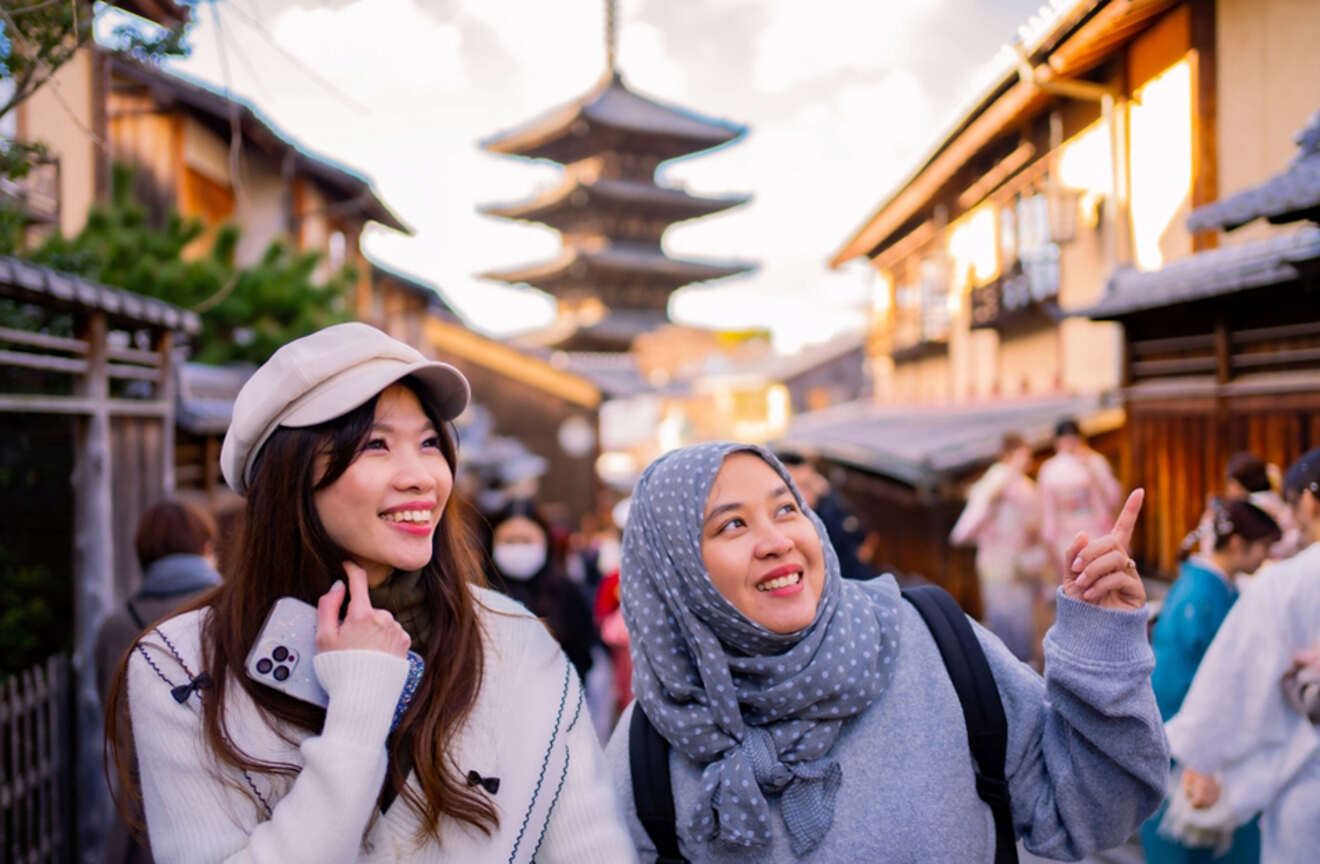
This is one of the best tips for full cultural immersion and one of the best ways to make progress in your language skills!
When I was in high school, I spent a year in the U.S. living with a host family on a student exchange program. Not only did this help me master my English, but I also got to experience American culture, food, family relations, and daily routines first-hand that I never would’ve been able to do if I lived in a hotel!
There’s no better way to experience a new culture than staying with locals! Plus, you can combine this with tip #4 to really boost your language skills!
Sites like Couchsurfing can help you find a host, but you can also check Facebook groups related to the topic.
7. Immerse yourself in the culture and daily life
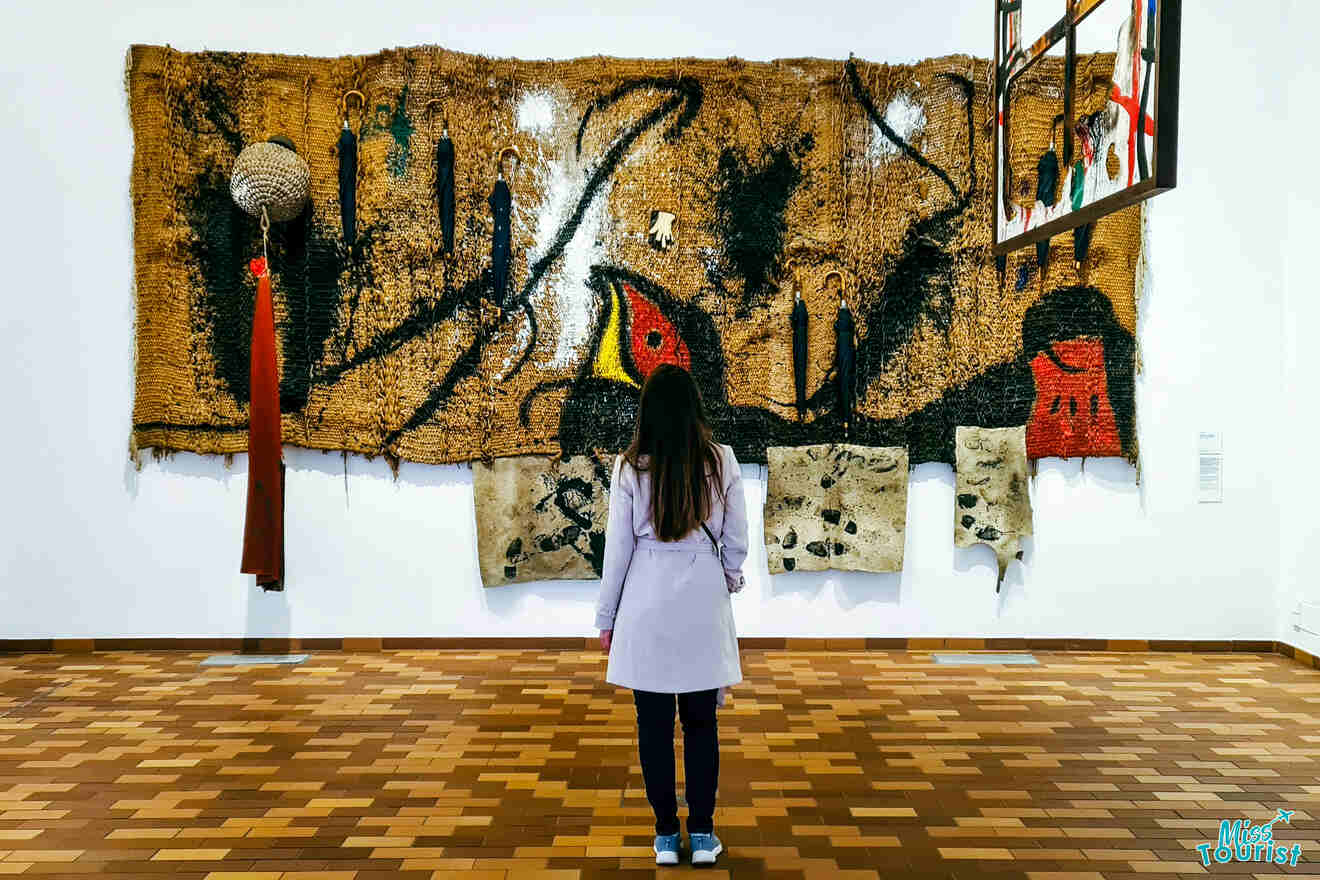
Ideally, you would already have an understanding of the culture of the country you’re traveling to before stepping off the plane. For example, before you travel, you could research local music, listen to podcasts, watch YouTube videos, or maybe even read a few books in the foreign language (depending on your level).
But there are tons of ways you can hone your language skills while experiencing the culture first-hand. Here are just some examples:
- Listen to audio announcements across town on metro or train stations, airports, etc. Try to understand what they’re saying or ask a person nearby what the announcement said since they’re often unclear. Fun fact, if you can understand the metro announcements in Paris, consider yourself fluent!
- Try reading things such as public signs, newspaper headlines, or book titles in book shops.
- Attend a play in a local theater or catch a game at the stadium.
- Join a cooking class or a workshop in any topic you’re interested in.
- Visit museums and carefully read the educational content in both English and the target language.
8. Listen to the conversations around you

Passive listening to raw, everyday conversations is worth way more than listening to pre-recorded textbook dialogs (or even Netflix shows)! While the people on recordings are paying special attention to their diction and respect all language rules, people on the street speak more naturally, and, to the disappointment of many learners, more chaotically.
I’ll never forget my despair when after months of listening to audio recordings from a textbook as a beginner French learner, I couldn’t understand a word French people were saying on those very topics when I landed in Paris. They spoke so much faster, used different words (slang), cut the endings of the words, it was a total mess.
Use your time abroad wisely and pay special attention to people’s conversations. I do this a lot to practice my Arabic listening skills now. I’ll work from a nearby coffee place frequented by Arabic speakers. I’ll try to catch some familiar phrases and give myself an imaginary pat on the back every time I understand the whole sentence. So rewarding, especially when you’re a beginner and you realize WOW, I can understand what these people are saying!
9. Join local language exchange events

Language exchange events are the most awesome, fun places where you can practice your skills! Pretty much every major European and American city has some type of language exchange event every month, so finding one for your next destination should be easy!
These places are called differently in different places, from polyglot clubs to polyglot cafés to language exchange nights, so make sure to check Facebook groups or even Google for available events nearby.
You can use the Meetup.com app to find nearest language exchange venues, or maybe even find an online language partner on Tandem or HelloTalk who happens to be from the city you’re staying in!
10. Use AI and translation apps
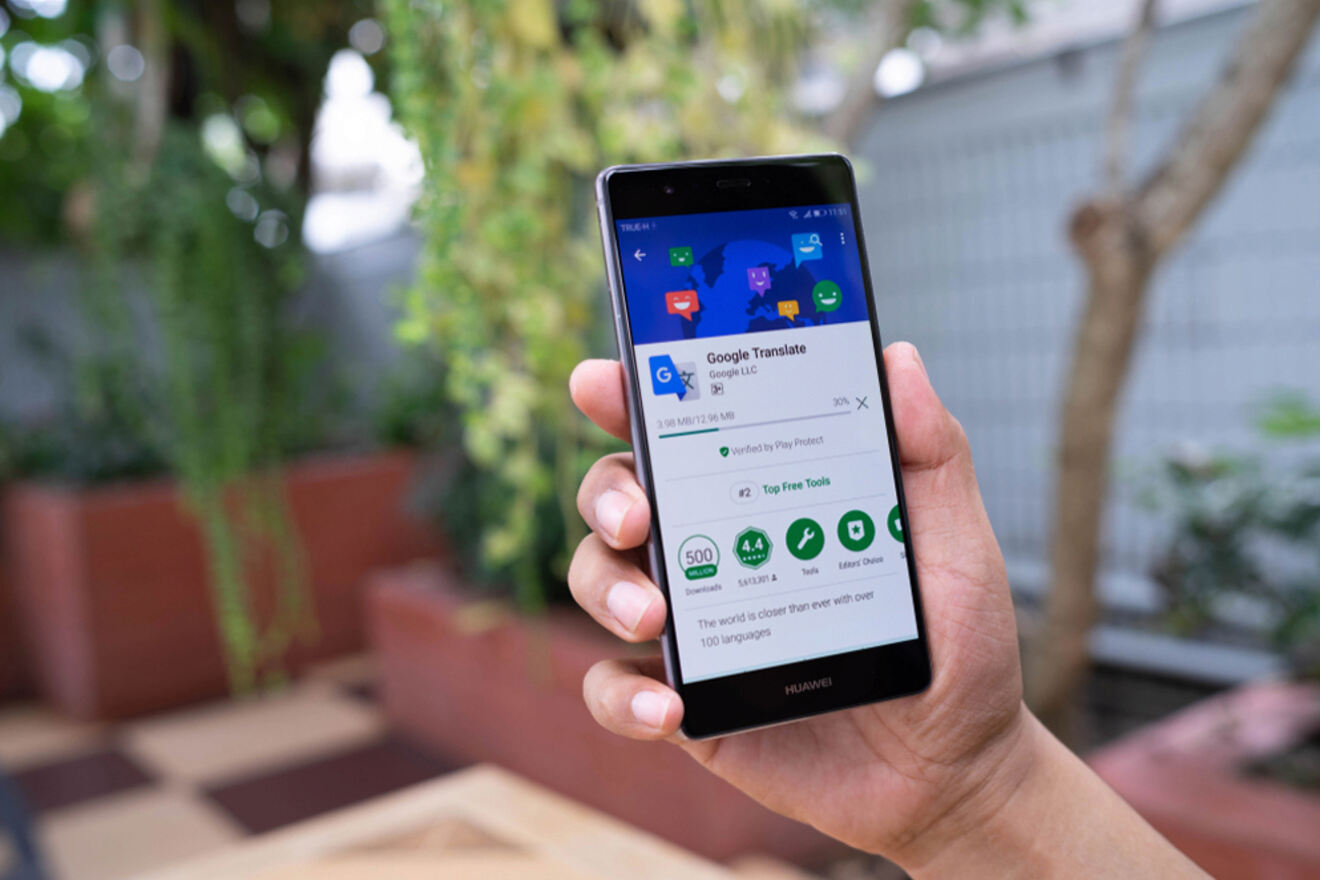
I’m sure you’ve used Google Translate before. But did you know about the cool functionality that lets you scan a picture with any type of text like street signs, menus, paragraphs, and get back that same image with a translation in another language?
It’s really easy to use, just make sure you have the Google Translate app installed on your phone so you can easily scan images with your phone camera!
You can save all the images for future reference and study the words there so next time you see the same text or sign on the street, you’ll know exactly what it says!
I can also recommend Chat GPT 4.0 (available for free, but you must pay for the extra translation features) as it lets you have a conversation and have it translated to another language. It’s a bit more sophisticated than Google Translate because you can talk back to it, and it can basically translate conversations you have with other people in real life.
Just beware that the tool is still developing and the translations may not be accurate. The efficiency will depend a lot on how clear the audio input is.
KEYBOARD TIP: This one may be a no-brainer, but just in case: Install the keyboard of the language you’re learning on your phone so you can have an easier time entering information or just practicing your typing. Also, some people like to change their entire phones or social media platforms to the language they learn, but I only found this useful for advanced beginner – intermediate levels. When I tried switching my phone to Turkish after just 2 lessons, I got frustrated because doing simple tasks such as uploading an image or forwarding a message suddenly took much longer.
11. Start a travel journal
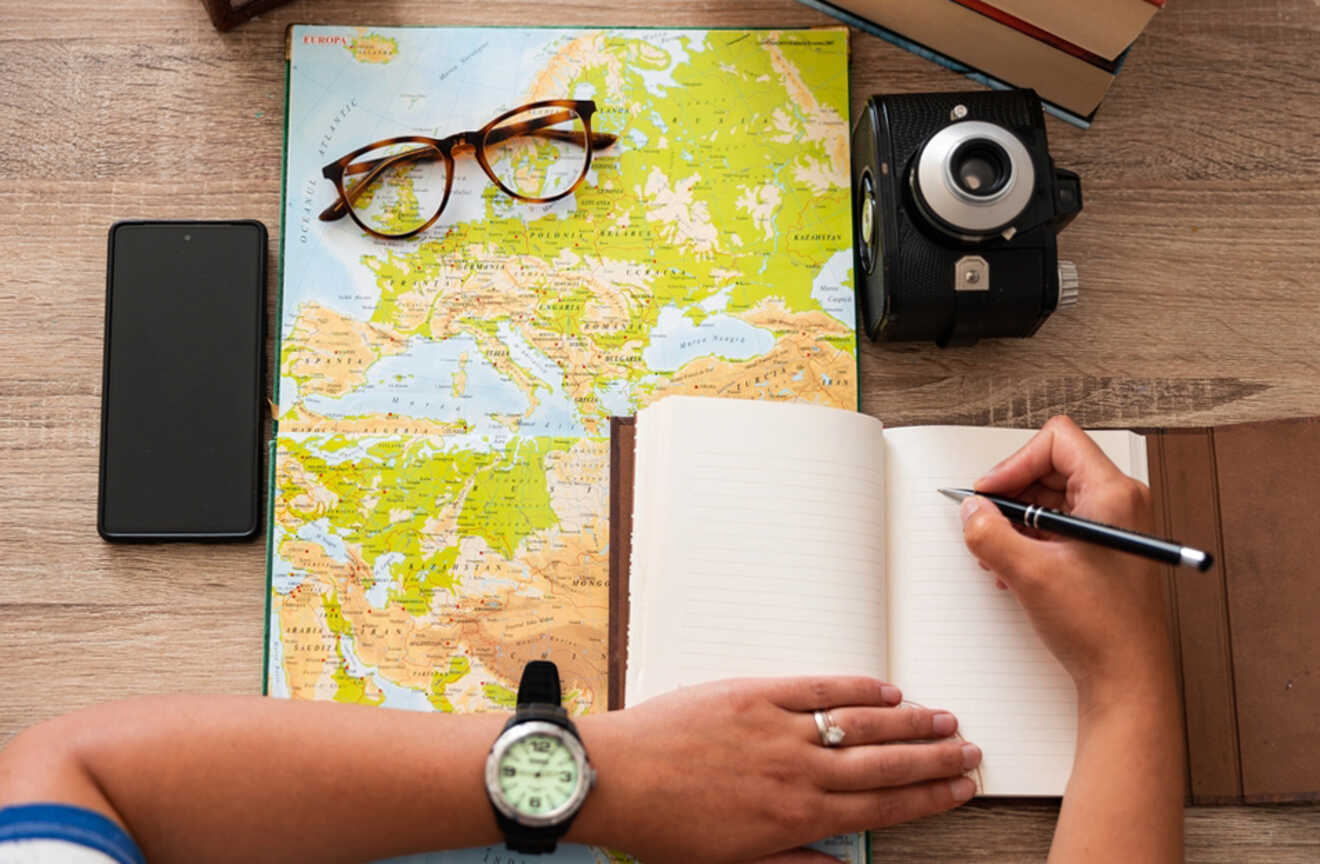
Writing a travel journal in the language you learn will help you practice your writing skills and improve your vocabulary. I love journals because they are suitable for learners of all levels, plus they make the whole trip so much more special!
- For beginners, you can write short sentences to describe what you did or saw using mostly simple sentences with verbs, personal pronouns, and some basic nouns.
- For intermediate level, you can add more adjectives, adverbs, and build your way to complex sentences.
- For advanced levels, only your imagination is the limit!
And if you ever run out of ideas on what to write about, I have a whole article where I share over 40 journal prompts! Check it out below!
12. Volunteer
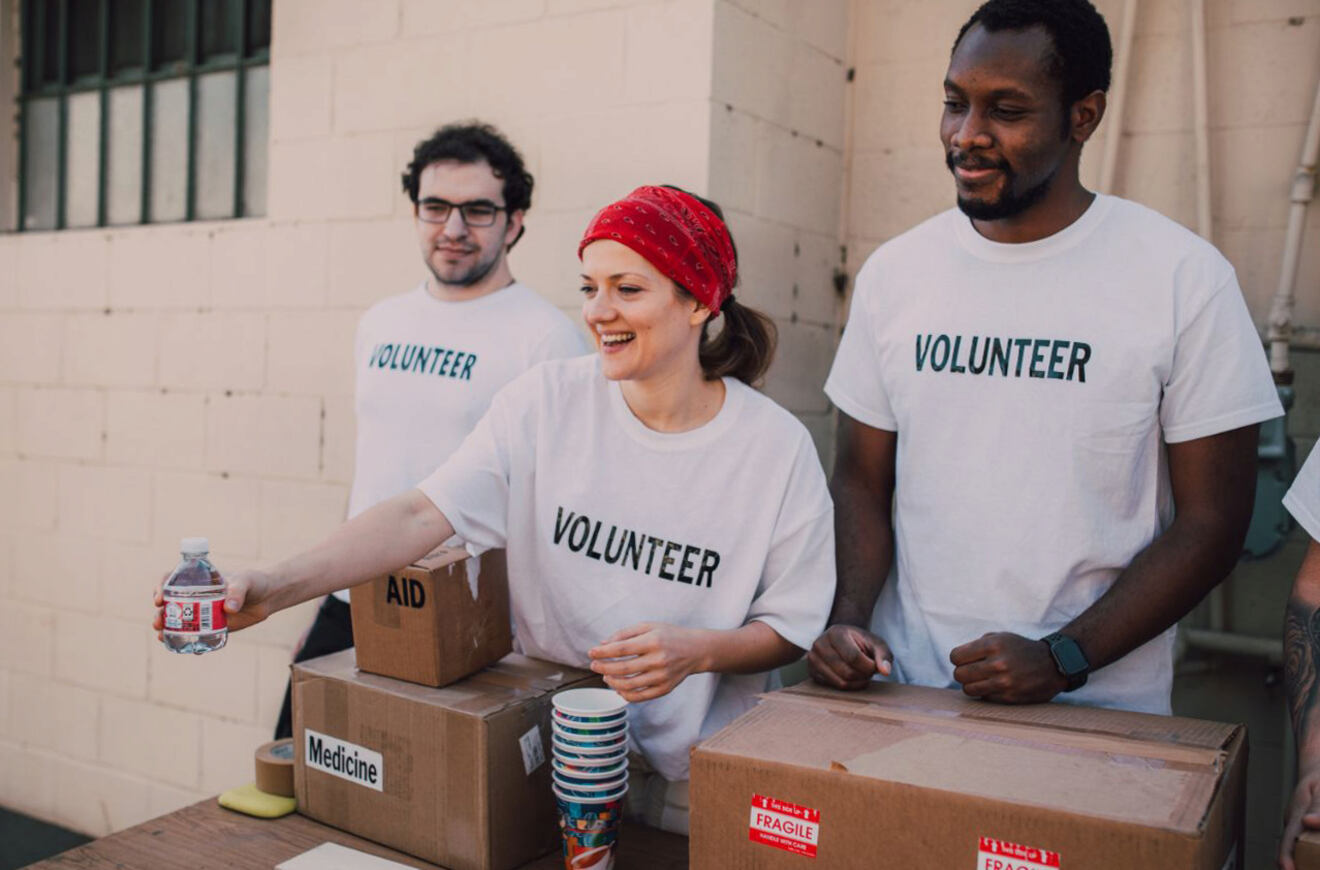
Volunteering is a great way to boost your language proficiency while doing a good deed. You can do research before traveling about local volunteer programs or NGOs and join them after you arrive.
Volunteer World and World Packers are popular platforms where you can find volunteer opportunities worldwide. But also make sure to check local Facebook groups or forums!
Do note that many volunteer projects last a couple of weeks or more, so they do require you to have a longer stay.
13. Be persistent
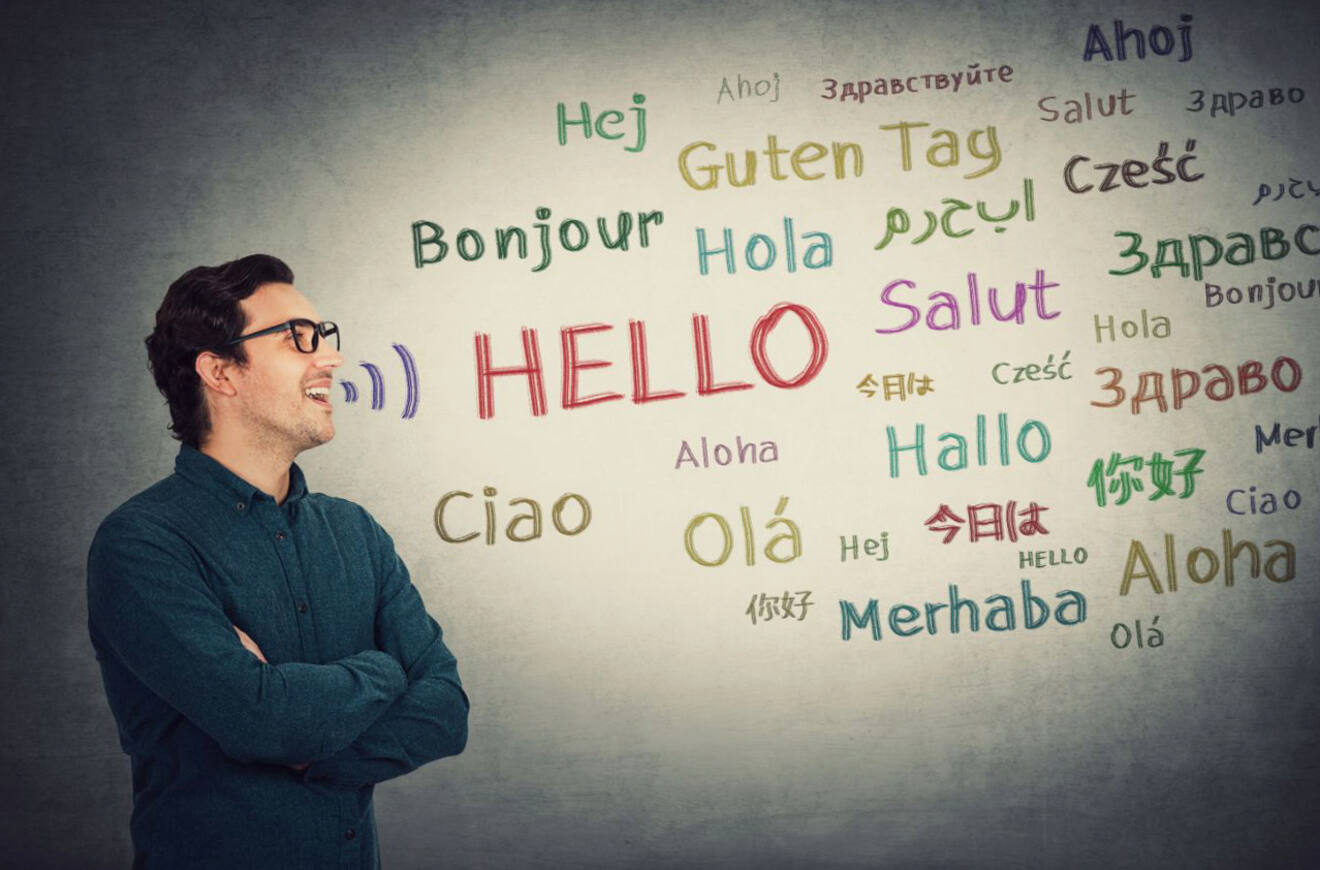
Learning a language is a hard activity for the brain. It’s really easy to get demotivated, especially if you can’t see the results of all your hard work right away. But the important part is that these difficulties are also a natural part of the progress and that you just have to be persistent.
But this sounds easier said than done, right?
So the point is to be persistent in using the method that actually works. Doing 10-minute Duolingo lessons every day isn’t enough. Reading a grammar book won’t do it either. I mean, there’s a guy who memorized all 340,000 words of a French dictionary for a Scrabble competition without knowing how to actually say a word in French!
My advice is to use every opportunity to be real with the language, to listen carefully, speak, and use it every day during your trip, especially in situations you’re normally interested or excited about.
Can you believe I became fluent in Russian without ever going over a single grammar book or a vocabulary list? Sure, I’ll make mistakes here and there, but I can have a meaningful conversation on most topics not because I studied from books, but because I talked to people every day. I became one with the culture, and the language came naturally. I was excited to observe, listen, repeat, and mimic real-life speech like a little child.
Being abroad and becoming immersed with the language and culture in all possible ways is the single most reliable way to actually learn. You can use a nice textbook or learning apps as a support for your learning. But the real stuff comes unconsciously when you soak in the living language like a sponge and then do your best to reproduce it!
Final thoughts on best ways to learn a language while traveling

Well, this was all I had in store for you, dear adventurer! I hope you liked this post as much as I enjoyed writing it!
As a passionate, lifelong language learner, I must say that the 2 must-dos if you want to become better at speaking a language are:
- Becoming comfortable with making mistakes and speaking your mind despite knowing you sound funny.
- Being genuinely interested in the culture and using your time abroad to fully (and I mean it, fully) immerse in it.
What tip above did you find most useful? Would you add any others? Share your thoughts or questions in the comments below, I’ll be happy to discuss them with you!
Hasta la vista,
Darija
Pin it for later!

Pin it for later!


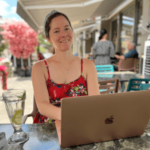 Darija Stojanovic
Darija Stojanovic 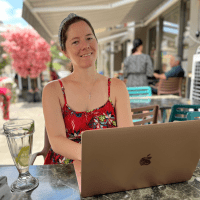







This site is protected by reCAPTCHA and the Google Privacy Policy and Terms of Service apply.